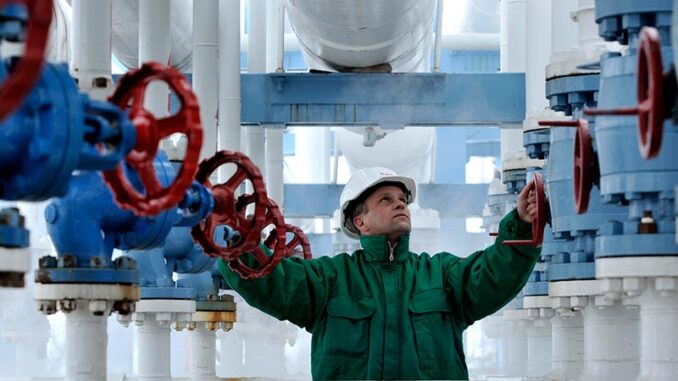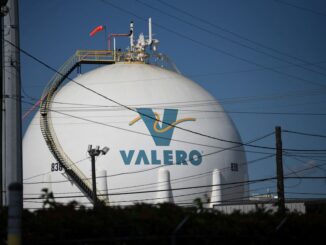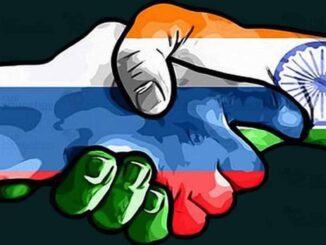
Russia could halt gas flows via Ukraine to Europe, as Moscow considers imposing sanctions on Naftogaz over its arbitration claim against Gazprom. Supplies via the idle Nord Stream and Nord Stream 2 pipelines won’t be possible for several months at least after both were damaged this week, apparently by a blast.
The sanctions threat against the Ukrainian energy company, along with the damaged pipelines in the Danish waters of the Baltic Sea, appear to heighten the energy war between Moscow and Europe and reflect the overall escalation of the conflict in Ukraine.
Russia on Sep. 27 completed the referendums in the occupied territories in eastern Ukraine, which it needed to justify their expected annexation — a step that should lead to a new wave of international sanctions and Russia’s further isolation.
Energy tensions between Moscow and Europe may further escalate, as the EU discusses a gas price cap mechanism, with 15 member states now calling for an EU-wide price cap on all gas imports, not only from Russia.
Ukraine Route May Close
Gazprom said on Sep. 27 that it rejects Naftogaz’ arbitration claim, filed recently over the unpaid volumes of prebooked gas transit. Gazprom believes it should not have to pay for capacity which is technically not available because of Kyiv’s decision to close one of the two entry points on the Russian border in May.
Ukraine closed the Sokhranovka entry point, where Gazprom had booked 32.6 million cubic meters per day, or 30% of the total booked transit capacity under a five-year deal signed in late 2019. Kyiv cited interference of the Russian military in operations at the compressor and metering station and said that Gazprom could send more gas via the remaining Sudzha entry point where Gazprom now ships just around 42 MMcm/d, well below the booked 77 MMcm/d capacity.
Flows could stop completely, as Gazprom said that Naftogaz’ arbitration claim was an “unfriendly” move, which could force the Russian authorities to blacklist the Ukrainian company. As a result, Gazprom won’t be able to fulfill its obligations under the contract with Naftogaz, including making financial transactions, the Russian exporter said in a statement.
Gazprom already stopped gas flows via the Yamal-Europe pipeline in May after Russia imposed sanctions against EuRoPol Gaz, the owner of the Polish section of the pipeline.
If the Ukrainian transit is closed, the only route for Russian gas to Europe will be Turk Stream, which reaches a limited number of European countries in the south but can technically bring part of the gas to the Baumgarten hub in Austria, where it can be available to a wider range of buyers. Turk Stream’s Europe-bound capacity is 15.75 billion cubic meters per year, or some 43 MMcm/d. Last week it shipped an average 37.5 MMcm/d.
Nord Stream Blasts
The Nord Stream pipe, which has been idle since late August, won’t resume operations for months, if not years, after its Danish section was damaged by what Danish Prime Minister Mette Frederiksen said on Sep. 27 was “deliberate actions.”
The almost parallel Nord Stream 2 pipeline, never launched after completion of construction in late 2021, was also damaged.
Who is responsible for the attacks is not clear, as neither side should be really interested in damaging important gas supply infrastructure ahead of the winter when the gas market is tight.
European observers say Moscow might have a motive, namely to further destabilize the European economy as the war in Ukraine escalates, as well as to push gas prices higher again. Spot prices have risen this week, but mainly on Gazprom’s threats to stop the transit flows via Ukraine rather than on the damage to the idle pipes in the Baltic Sea, which Europe did not really expect to bring additional gas this winter.
Kremlin spokesman Dmitry Peskov on Sep. 28 said that allegations that Moscow could be involved in the attacks on the pipelines were absurd. He hinted that the US might be benefiting from the destruction of the pipes as its suppliers get huge profits from LNG supplies to Europe.
He also referred to a tweet by former Polish Defense Minister and current member of the European Parliament Radek Sikorski, in which he thanked the US for the damaged pipelines. “What does this ‘thank you’ mean, we also don’t know,” Peskov said.
The Nord Stream blasts coincided with the launch on Sep. 27 of the Baltic Pipe link from Norway to Poland, which Warsaw sees as a key step to diversify away from Russian gas. Moscow stopped direct supplies to Poland in April after Warsaw rejected Russia’s new gas payment rules for “unfriendly” countries.



